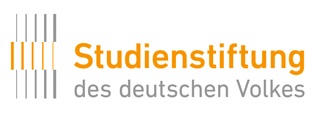Rhythmic entrainment in individuals with dysarthria following Parkinson’s disease or spinocerebellar disease
Mona Späth, Dr. Ingrid Aichert & Prof. Dr. Wolfram Ziegler
Contact: mona.spaeth@ekn-muenchen.de
Clinical partners:
- Schön Klinik München Schwabing, Neurologie und Klinische Neurophysiologie, Prof. Dr. Ceballos-Baumann, Frau Wagner-Sonntag
- Universitätsklinikum Essen, Klinik für Neurologie, Prof. Dr. Timmann-Braun
Healthy speakers often adapt unintentionally to their communication partners’ speech. In phonetic studies, several parameters have been investigated, including speech rate, pitch, loudness and vowel characteristics for instance.
Whether individuals with dysarthria still align their speech to their communication partners’ acoustic-phonetic style has not been investigated so far. This question is clinically relevant, because such adaptive behaviour, if present, could be systematically exploited by speech therapists serving as model speakers.
This doctoral research study investigates whether and in what way individuals with dysarthria following Parkinson’s disease or spinocerebellar ataxia adapt to a model speaker. In different experimental conditions (reading, repeating, dyads), the influence of auditory input on speech motor control will be analysed using perceptual and acoustic methods, with a focus on prosodic aspects.
Relevant research questions comprise amongst others:
- Do participants adopt a model speaker’s speech rhythm? Do they start in rhythm after the model speaker’s turn? Are there differences between rhythmically regular and irregular sentences?
- Do participants imitate acoustically manipulated speech characteristics such as speech rate and intensity?
By comparing the two patient groups, conclusions regarding the functions of the affected brain structures (basal ganglia versus cerebellum) in the integration of auditory input into motor plans can be drawn.
 This doctoral research project is an extension of an investigation on speech rhythm in apraxia of speech and phonological impairment sponsored by the German Research Association (DFG), and is financially supported by Studienstiftung des deutschen Volkes.
This doctoral research project is an extension of an investigation on speech rhythm in apraxia of speech and phonological impairment sponsored by the German Research Association (DFG), and is financially supported by Studienstiftung des deutschen Volkes.

